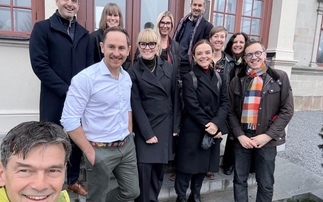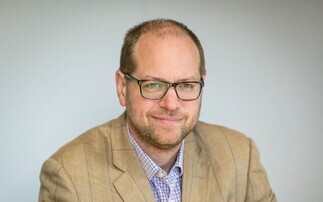Unilever chief executive explains how businesses can play a critical role in ensuring the UN's new development targets are met
Target-setting is all well and good, but how will these new environmental targets translate into policy and development activity on the ground?
Many countries' Paris Summit commitments or Intended Nationally Determined Contributions (INDCs) go beyond pure emissions targets to specific measures they intend to take. Of course, in many cases domestic legislation or regulations will be needed to turn the targets into reality. Some countries are already moving - take President Obama's leadership in setting emissions performance standards for power stations as an example. But perhaps most important of all is the signal the Paris agreement will send to private sector investors and the resulting changes in capital flows that are already occurring as confidence in the new trajectory continues to rise.
How do you see the SDGs informing the Paris climate summit?
The post-2015 meeting in New York sends a positive signal that the world is ready to change course. The business community is engaged as never before. If we are successful, we have a very real prospect of reaching an ambitious and equitable international agreement at COP21 in Paris. Advancing progress on human development will be impossible without action to preserve a stable climate. Global commitment to the SDG agenda presupposes commitment to ambitious climate action. The ambitious vision of the SDGs, and countries commitment to implement it can only add further moral weight to the necessity of a Paris agreement that really marks the turning point in our fight against the prospect of runaway climate change and the end of the fossil fuel dominated economy.
What commercial risks and opportunities do the SDGs and Paris present for a company such as Unilever?
It is absolutely vital that we reach an agreement in New York and Paris this year. The effects of climate change threaten us all, impacting both consumers and supply chains and often hitting the poorest communities the hardest. This is an issue for all global companies, not just Unilever. If we don't all tackle climate change in a constructive way, global economic growth will be stifled.
I have talked earlier about the economic and business opportunities that the SDGs and Paris bring. How our brands whose social missions are aligned with tackling some of these global challenges, are growing strongly. Thinking about sustainability - the SDGs and climate - also drives innovation. So if you design with the circular economy in mind or innovate to reduce packaging, you can save money as well as doing the right thing.
Practically how do you see Unilever responding to these new targets?
We have already set out our ambition to double the size of our business whilst halving our environmental footprint and increasing our social impact. This is the core focus of our business - enshrined in the USLP, and something that we continue to evolve as we make progress. For example, in 2014 we strengthened the USLP to include a new commitment - our pledge to empower five million women by 2020. And earlier this year, we released our first ever human rights report, which set out our ambition to actively advance human rights across all areas of our business. We will continue to take lessons from the SDG framework.
How confident are you these goals can be met? Where are the biggest challenges in meeting these goals?
I am very confident. I am confident because this is about setting the world firmly on a course to end poverty and protect our planet - there is no bigger task. But meeting these ambitious goals will require an economic transformation, a new way of doing business and an even greater emphasis on collaboration. But we need to overcome the common misconception that somehow action on climate and poverty are at odds with economic growth. We have seen the impact the Global Commission on Climate and the Economy has had in reframing the narrative on climate action and economic growth. As businesses, we will need to give confidence to governments that economies can grow inclusively and sustainably and that policies which reward sustainable behaviour are better for the bottom line.
Paul Polman is CEO of Unilever and Chairman of the World Business Council for Sustainable Development.
You can follow Paul on Twitter @PaulPolman.
Unilever has been named as a leader in the 2015 Dow Jones Sustainability Index (DJSI) results
This article is part of BusinessGreen's Road to Paris Hub, hosted in association with PwC








